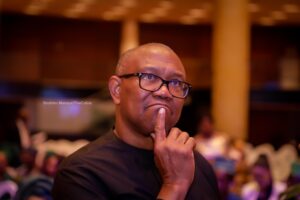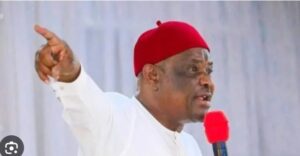Former Akwa Ibom State Governor, Obong Victor Attah, recently shared how President Olusegun Obasanjo stopped the state from having 24-hour electricity. During an interview on Channels Television, Attah explained how he built a power plant in Akwa Ibom to provide consistent power to the state. However, despite his efforts, Obasanjo introduced a law that forced any power generated by the plant to be added to the national grid, instead of allowing it to be used in Akwa Ibom.
Attah revealed that the power station was built with funds from the state government, but the law meant that Akwa Ibom could not use its own electricity. Instead, the state had to rely on the failing national grid, which was often unstable. Attah said that his dream of providing 24-hour electricity for Akwa Ibom was crushed due to Nigeria’s flawed federal system.
At the time, Attah was a member of the People’s Democratic Party (PDP), and he stressed that the issue was not about party politics but about the country’s faulty constitutional arrangement. According to Attah, Nigeria’s constitution, imposed by the military, prevents states from controlling their own resources, making it difficult for them to meet the needs of their people.
Attah believes that if Nigeria had a true federal system, Akwa Ibom would have been able to manage its own power generation and distribution. He also expressed disappointment that President Bola Tinubu had not yet taken steps to bring about true federalism in the country.
However, Attah did praise the recent amendment to Nigeria’s Electricity Act of 2023. The amendment allows states to generate, distribute, and regulate electricity within their own borders. Attah expressed hope that this new law would help Akwa Ibom achieve its goal of reliable electricity, with current Governor Umo Eno working hard to establish an Akwa Ibom power company.
The electricity sector in Nigeria has long been plagued by problems, including poor policy consistency, low investments, and operational challenges. Despite the privatization of the sector, power generation, transmission, and distribution remain inefficient. In 2024, the Nigerian Electricity Regulatory Commission (NERC) approved higher electricity prices, further adding to the burden on consumers. Some states, including Enugu, Ekiti, Ondo, and others, have now been granted licenses to manage their own power plants, signaling a step toward decentralizing power distribution.
Experts believe that allowing states to control power generation and distribution is essential for Nigeria’s industrial growth and productivity. If successful, these moves could help address the long-standing electricity challenges the country faces.







